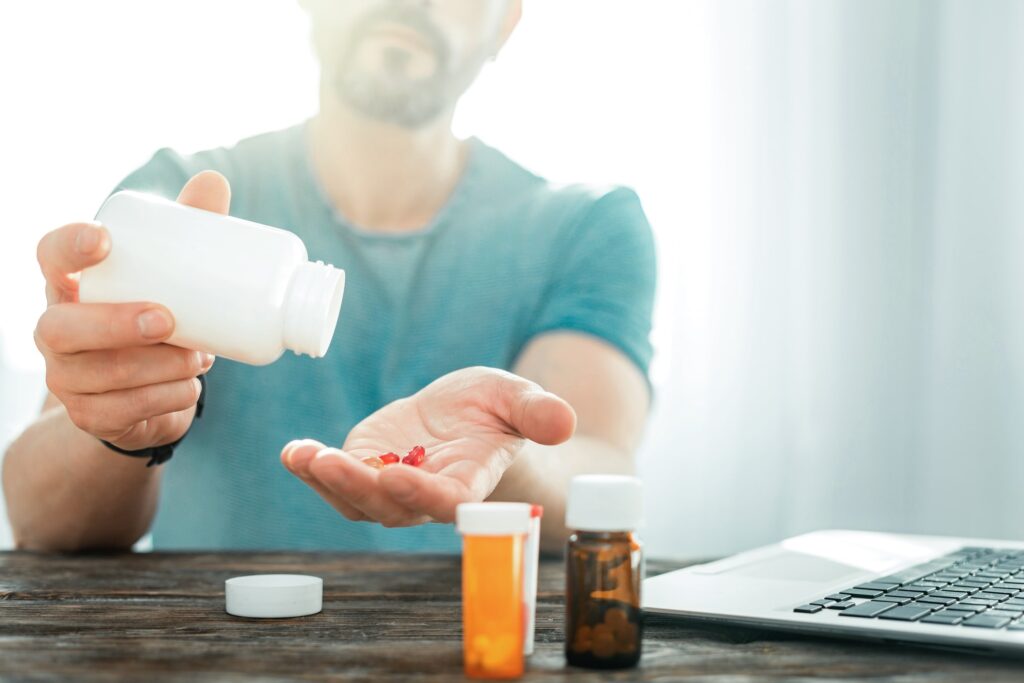Post-traumatic stress disorder (PTSD) on its own can seriously interfere with a person’s life. When you combine PTSD and addiction, the hurdles to recovery may seem insurmountable. Fortunately, any hopelessness a person feels is completely in their own head.
No matter how bleak the outlook may seem, help is available for those who seek out mental health and addiction treatment in Morriston, FL.

PTSD is an often debilitating condition stemming from severe stress and traumatic events. PTSD symptoms can range from constantly thinking about the precipitating event to flashbacks and violent outbursts. Individuals suffering from this condition may be unable to perform basic life tasks due to symptoms.
Some people suffer from partial posttraumatic stress disorder and show clinically significant PTSD symptoms but don’t meet the full diagnostic criteria. Whatever the severity of your PTSD, be assured we can help. Many of these people discover that drug or alcohol abuse seems to lessen the condition’s severity.
Many of these people discover that drug or alcohol abuse seems to lessen the condition’s severity. Unfortunately, this typically only results in PTSD and addiction both creating issues. Those who self-medicate to treat the illness often choose opioids to help settle their minds. When opioid use goes unmonitored by professionals, though, the risk of comorbid alcohol dependence and drug abuse increases exponentially. A person will need more and more drugs to deal with PTSD’s debilitating effects.
Even if a person manages to not become addicted to a drug with which they’re self-medicating — an unlikely outcome — using substances can reduce their ability to cope. No matter how long a person self-medicates, posttraumatic stress disorder will not simply vanish on its own. And when the PTSD symptoms finally surface, they typically hit people like a ton of bricks.
Statistics linked to PTSD and substance abuse disorder paint a bleak picture of a common problem. Co-occurring disorders are present with many mental health issues, but post-traumatic stress disorder seems to create disproportionate risks. There are many factors that could explain this connection, but PTSD and addiction statistics proving this link exists are undeniable:
These PTSD and substance use disorder statistics show this problem is far from uncommon. In many cases, it can even prove fatal. If you’re dealing with either of these conditions, reach out to us today at Transformations Mending Fences. We provide a variety of therapeutic approaches that can help. We also offer rehab for veterans and first responders treatment.

If you’re drinking or taking drugs to deal with upsetting thoughts or negative feelings, it’s likely that you have a co-occurring disorder. Without a diagnosis from a mental health professional, it’s difficult to say whether the underlying condition is depression, anxiety, PTSD, or some other issue. In fact, it can even be difficult to pinpoint whether the addiction or mental issue came first.
If you’re wondering whether your issues relate directly to PTSD and addiction, though, it’s important that you can identify the symptoms of post-traumatic stress disorder. If you notice any of the following signs after a traumatic event, intense stressors, or long-term abuse, it’s possible that you may have developed PTSD:
These symptoms can arise after any traumatic event, and they may not indicate post-traumatic stress disorder. In fact, many people experience these for weeks following a stressful event without long-term issues. If symptoms persist for more than three months, though, a diagnosis of PTSD becomes far more likely.
While PTSD and addiction are major problems in America, seeking help rather than self-medicating can help you better overcome trauma-related issues. These problems typically only worsen when left untreated, so reaching out for professional care immediately improves the odds of recovery.
At Transformations Mending Fences, we take a holistic approach to overcoming addiction and mental illness. This means we focus on the mind, body, and spirit in our therapies. It also means we focus on treating all the problems a person is facing. That’s because undergoing cognitive behavioral therapy for post-traumatic stress without dealing with addiction results in poorer treatment outcomes.
It’s important to deal with co-occurring mental disorders such as PTSD and substance use disorders simultaneously. We accomplish this through a variety of therapeutic approaches. The following are some of the most commonly used co-occurring PTSD and addiction treatments at our facilities:
Our mental health and addiction rehab in Morriston FL offers each of these treatments and more. We understand that no two people are alike, and even if multiple individuals suffer from PTSD and addiction, their paths to recovery can look very different. The one thing they have in common is their need to reach out for help immediately.

When someone experiences a traumatic event, the psychological outcome can be devastating. There are a variety of treatments available to those suffering from the condition, but people far too often view seeking help as a weakness This is an untrue and dangerous belief, and in far too many cases, it simply results in other unhealthy behaviors.
If you’re suffering from PTSD and addiction, you don’t have to fight the battle on your own. Our rehab for mental health and addiction has a certified staff of professionals dedicated to helping build customized treatment plans for every client. Each person has individual needs, and we can help identify the therapeutic approaches that will help meet those needs.
Contact us today and we’ll help you see that PTSD and addiction do not have to rule your life.
U.S. Department of Veterans Affairs
https://www.ptsd.va.gov/professional/treat/cooccurring/tx_sud_va.asp
Addiction and Health
https://www.ncbi.nlm.nih.gov/pmc/articles/PMC3905521/
Depression and Anxiety